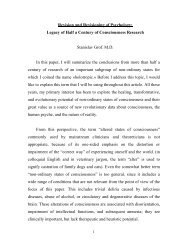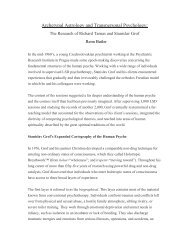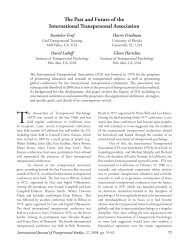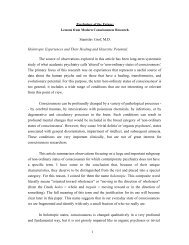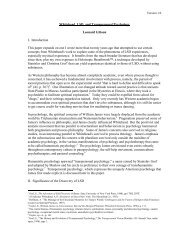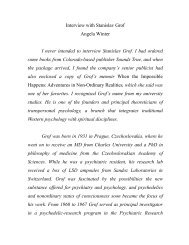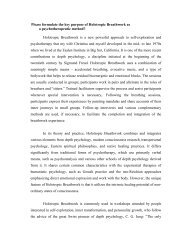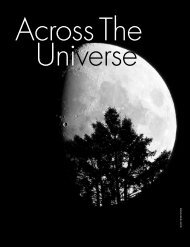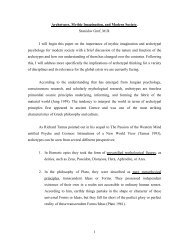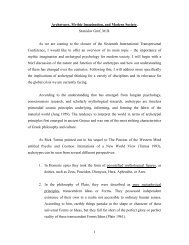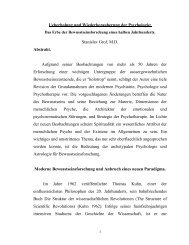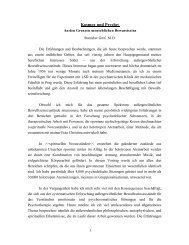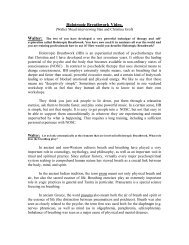1 PSYCHOSIS AND HUMAN SOCIETY: A Historical ... - Stanislav Grof
1 PSYCHOSIS AND HUMAN SOCIETY: A Historical ... - Stanislav Grof
1 PSYCHOSIS AND HUMAN SOCIETY: A Historical ... - Stanislav Grof
You also want an ePaper? Increase the reach of your titles
YUMPU automatically turns print PDFs into web optimized ePapers that Google loves.
Disturbances, in which he discussed the difficulties that often precede, accompany, and<br />
follow a powerful spiritual opening.<br />
Another important contribution to transpersonal understanding of non-ordinary<br />
states came from the work of the famous American psychologist Abraham Maslow.<br />
Maslow conducted a large study of people who had had spontaneous mystical states, or<br />
"peak experiences" as he called them. Maslow's research showed that traditional<br />
psychiatry was in error diagnosing such conditions as mental diseases and treating them<br />
with routine suppressive medication. According to him, peak experiences often occur in<br />
otherwise healthy individuals and when they are allowed to complete themselves they are<br />
conducive to "self-actualization" or "self-realization" - a fuller development of one's<br />
potential. The work of Jung, Assagioli, and Maslow has attracted many dedicated<br />
followers and received high esteem in transpersonal circles, but has remained on the<br />
periphery of academic psychology and psychiatry.<br />
Although comprehensive in itself and in accord with the entire cultural history of<br />
humanity, transpersonal psychology meets strong resistance among traditionally educated<br />
scientists. Its wider acceptance will have to wait until the time when the revolutinary<br />
developments in modern science replace the Newtonian - Cartesian thinking with which<br />
transpersonal psychology is in principle incompatible. It is very exciting and encouraging<br />
to see the emergence of many revolutionary advances of modern science that have been<br />
referred to as the "new paradigm" (quantum-relativistic physics, information and systems<br />
theory, the holographic model of the brain and the universe, the theory of morphogenetic<br />
fields, and many others). While they seriously question and undermine the most<br />
fundamental assumptions of seventeenth century thinking that still dominates mainstream<br />
science, they are all compatible with the transpersonal perspective.<br />
VI. Existentialism and Antipsychiatry:<br />
Radical Challenges to the Medical Model.<br />
Having reviewed the history of opinions about unusual experiences and<br />
behaviors, we should at least briefly mention certain developments that challenge the<br />
basic foundations of psychiatry by denying the very concept of psychopathology. Thus<br />
phenomenology, based on the work of the German philosopher Edmund Husserl and<br />
represented by such names as Ludwig Binswanger and Medard Boss, altogether refuses<br />
the disease concept of psychiatry. According to this view, insanity is nothing more than<br />
17



